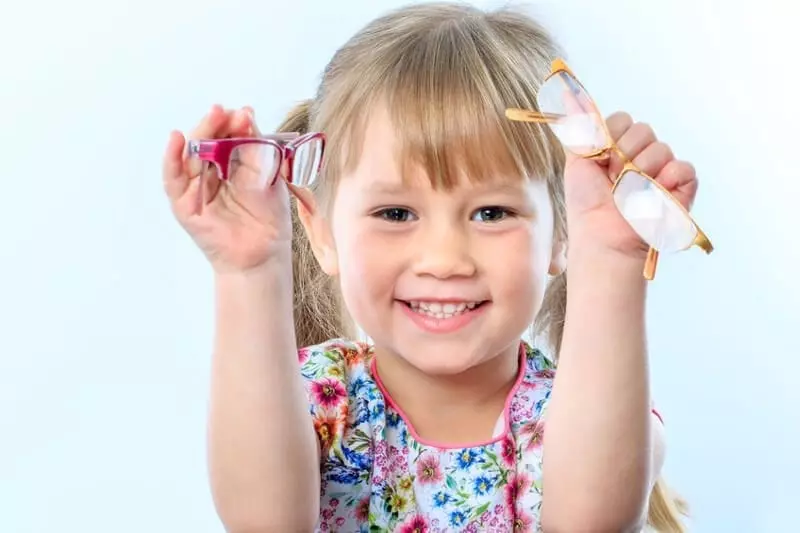When your child had to sit in the front row at school to see the board, you knew it was time to invest in some glasses. But even though his or her eyewear allows better vision, your child is still reluctant to keep his or her glasses on and wear them to school. Your child may be afraid of the impending ridicule or be simply embarrassed by wearing them.
As a parent, this can be concerning, especially if a child dreads going to school or other areas because of his or her glasses. However, the only other option is contact lenses, and you may be unsure if contact lenses are a wise choice for children.
Is My Child Too Young for Contacts?
Surprisingly, there isn’t a set age for children to start wearing contacts. Eight-year-olds have proven capable of taking care of their own contacts, and even infants have been prescribed contacts for certain eye conditions.
Honestly, what determines if children are ready for contact lenses is their own ability to be responsible and careful.
Before your child gets contact lenses, he or she should have a strong understanding of proper hygiene and should be highly capable of caring for his or her own belongings. Essentially, you should feel like you can trust your child to properly care for the contacts to keep them in good condition and keep his or her eyes healthy.
Why Should Your Child Get Contact Lenses?
If your child is self-conscious about wearing glasses, contacts can help boost his or her confidence while allowing your child to see clearly when he or she needs to. For kids that have thick lenses on their glasses, this can be especially helpful, as they may be embarrassed. Contacts also allow them to see more clearly than they would with glasses because contacts cover a person’s peripheral vision where glasses fail.
Should your child play sports, contact lenses can help them play without distractions. He or she won’t have to keep track of their glasses as they play, and with better peripheral vision, your child can perform better. Contacts also provide steadier vision correction, as they won’t move when your child is running or jumping. Plus, if you child takes a somewhat hard hit to the face with glasses on, he or she could break their glasses, which can be incredibly inconvenient.
Some contact lenses can even slow progressive nearsightedness. If you get the right gas permeable, or GP, contacts, they’ll slow down the growth of the eyes, thus slowing the development of your child’s nearsightedness.
How Might Contact Lenses Be a Problem?
If your child doesn’t properly care for the lenses or uses them irresponsibly, there could be consequences. When the lenses aren’t properly cleaned, your child can get an infection, or he or she might experience eye irritation. Should the situation grow serious enough, your child may even suffer vision loss.
Ensure your child knows how to properly clean their contact lenses, and make sure he or she keeps them in a proper, clean solution. Be sure your child understand that he or she shouldn’t use a substitute solution or liquid, such as distilled water, spit, or tap water.
Also let your child know that he or she should never trade their contact lenses with anyone else and that he or she shouldn’t wear lenses that are too old.
If your child wears makeup, let him or her know that you should only apply makeup after putting contacts in, not before.
Allergies can also cause complications. Should your child have allergies, it may be best to avoid contacts until the allergies clear up. Contact lenses could further irritate the eyes during allergy season.
What are the Best Lenses for My Child?
Depending on your child’s age, it may be best to get contact lenses that need minimal maintenance or can better withstand wear and tear.
Rigid gas permeable, or RGP, contact lenses are stiffer lenses that can take a little extra abuse. They don’t tear as easily as soft lenses, and with modern developments, RGP lenses are as breathable as soft lenses.
Another great option for kids is daily soft lenses. Because you can simply throw them away at the end of the day, your child won’t have to worry about cleaning or storing them for the night. Just be sure he or she doesn’t use a set of dailies longer than a day.
If you think your child is ready for contact lenses, talk to a knowledgeable eye doctor, such as those at All About Eyes. We can offer helpful advice, and we can prescribe the best lenses for your child. Once your child gets his or her contact lenses, we can also educate him or her on how to care for the lenses.

